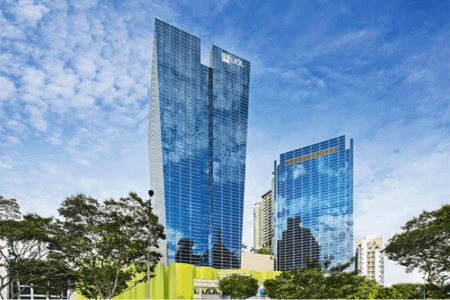The REIT reporting season is rolling in hard and fast.
Because of the combination of surging inflation and high interest rates, many REITs have succumbed to these macroeconomic pressures and reported lower net property income (NPI) and distributable income.
That’s not the case for CapitaLand Integrated Commercial Trust (SGX: C38U), or CICT, though.
The retail cum commercial REIT pulled off an admirable performance with its latest fiscal 2023 first quarter (1Q 2023) business update.
Here are five highlights from CICT’s latest business update.
1. A commendable financial performance
CICT pulled off a commendable financial performance with gross revenue for the quarter rising 14.4% year on year to S$388.5 million.
NPI improved by 11.3% year on year to S$276.3 million.
The largest increase in NPI came from its office assets which saw the metric jump by 25.5% year on year to S$92.9 million.
The performance of the integrated developments division was also admirable as NPI improved by 14.2% year on year to S$82.8 million.
For the retail side, NPI dipped very slightly from S$101.8 million in 1Q 2022 to S$101.2 million in 1Q 2023.
The overall better performance was attributed to contributions from acquisitions completed in the first half of last year along with higher rental income from existing properties.
2. Resilient debt metrics
The REIT had an aggregate leverage of 40.9% as of 31 March 2023, up slightly from 40.4% as of 31 December 2022.
77% of its borrowings are on fixed rates, thus mitigating a sharp rise in finance costs.
Interest coverage remained healthy at 3.4 times, dipping slightly from 3.7 times three months ago.
CICT’s debt maturity profile had an average maturity of 4.2 years, with just 4% of its total loans coming due this year.
The manager also disclosed the sensitivity of the REIT to rising interest rates.
A 1% increase in base rates will lead to a S$0.0034 decline in distribution per unit (DPU).
With a cost of debt at 3.1%, we factor in a potential increase of three percentage points for prudence.
Should this occur, CICT’s DPU will decrease by S$0.0102, or around 9.6% of 2022’s DPU of S$0.1058.
3. Healthy operating metrics
CICT’s portfolio metrics remain robust with the committed occupancy rate increasing slightly from 95.8% as of 31 December 2022 to 96.2% in the latest quarter.
The portfolio’s weighted average lease expiry stood at 3.7 years, with leases due this year being pushed to new expiries in 2026 and 2028 & beyond.
In terms of rental reversion, CICT’s retail arm saw a positive rent reversion of 6% for 1Q 2023.
The office side recorded a positive rent reversion of 4.2% for the same period.
4. Retail division demonstrating good recovery
The retail division is seeing a healthy recovery as borders reopen and air travel resumes.
Retail occupancy stood high at 98.5% as of 31 March 2023 while the retention rate came in at close to 85%.
With more tourists visiting Singapore, downtown malls saw a better rental reversion rate of 7.2% versus 5.3% for suburban malls.
Shopper traffic for downtown malls jumped 20.3% year on year while tenant sales climbed nearly 30% year on year, evidence that the influx of tourists is benefitting this category.
CICT’s manager is helping to boost these numbers by launching various campaigns in 1Q 2023 such as Project Green at Bugis Junction and Bugis+ and the DIOR Launch of Mitzah Collection at Plaza Singapura.
5. An encouraging office performance
The office division did not disappoint, either.
Across CICT’s Singapore, German and Australian office assets, occupancy stood high at 94.8% with close to 211,000 square feet of renewed leases.
For the Singapore office arm, occupancy stood even higher at 96.7% with a very high retention rate of 94.5%.
Get Smart: Investors can expect a higher DPU
Investors should be pleased to note that CICT’s financial and operating metrics remain healthy despite the headwinds of inflation and high interest rates.
The manager has hedged utility rates in 2023 and 2024 to ensure costs are contained.
In addition, an increased service charge has been levied on the majority of its Singapore properties since January this year to cover high expenses.
Barring unforeseen circumstances, investors can expect a better DPU when the REIT reports its 2023’s first-half performance in July 2023.
Is it a good time to buy into Singapore REITs? If you’ve thought about it, then our latest REITs guide will be an essential read. This exclusive pdf report shows you why REITs are still excellent assets, what sectors to look out for and how to find good REITs today. The info inside can help you build a solid retirement portfolio. Click here to download it for FREE.
Follow us on Facebook and Telegram for the latest investing news and analyses!
Disclosure: Royston Yang does not own shares in any of the companies mentioned.





